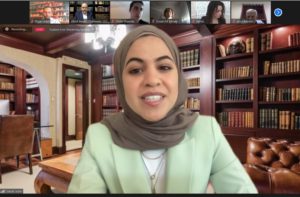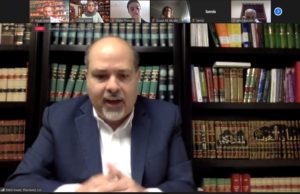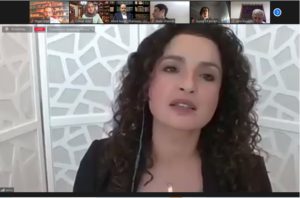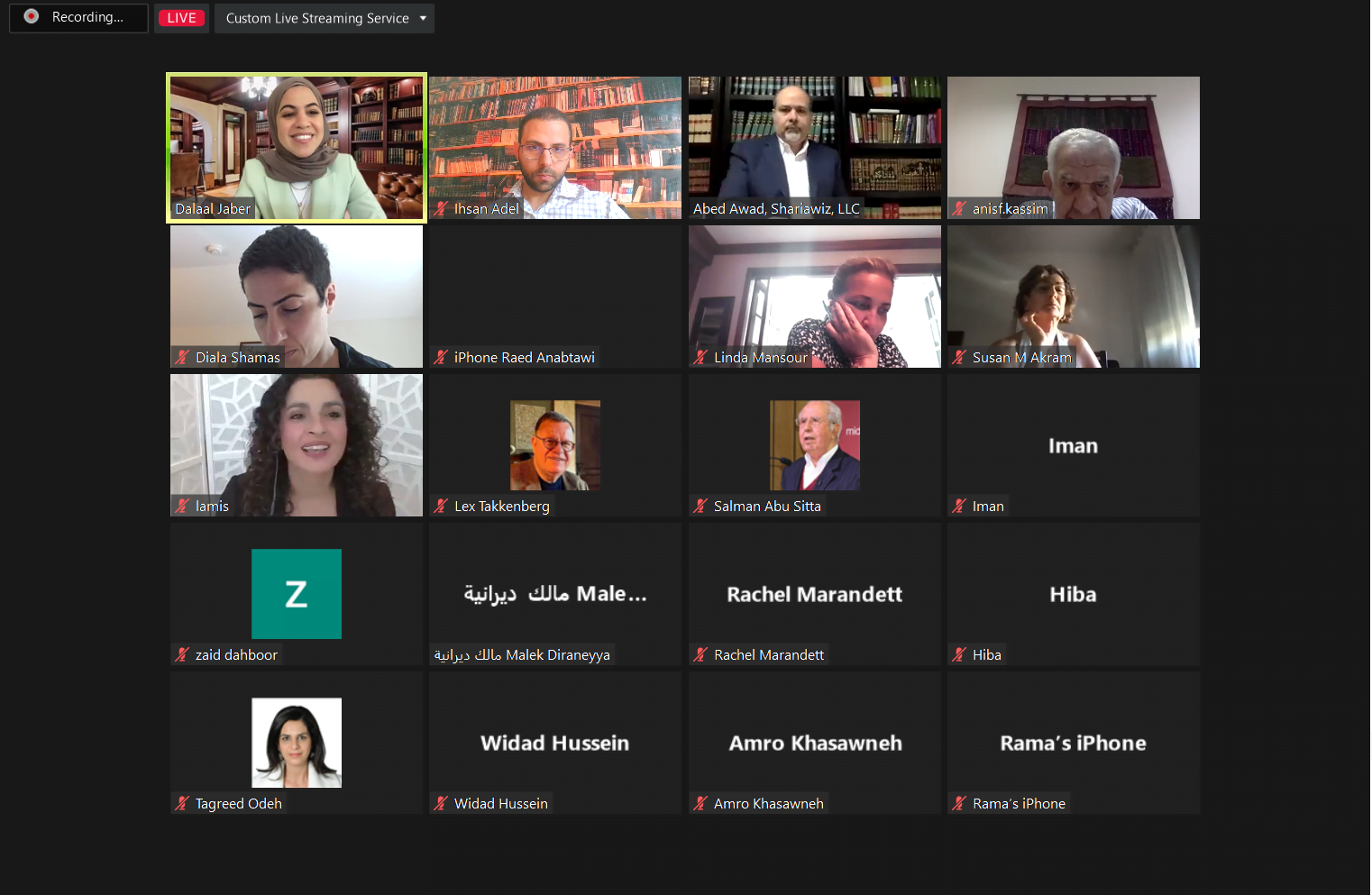Jurists for Palestine Forum discusses the Lawfare within the US Judicial System: For and Against Palestinians
Law for Palestine in partnership with the Arab Renaissance for Democracy and Development (ARDD) have organized, as part of the of “Jurists for Palestine Forum” monthly webinars, a webinar titled “For and Against Palestinians: Lawfare within the US Judicial System”.
The webinar, which is the second in the new season of the Jurists for Palestine Forum, addressed the legal and judicial opportunities for Palestinian victims to achieve justice within the US judicial system, as well as the impact of the US constitutional amendments on the lawfare against Palestinians in the US courts. Furthermore, the webinar tested the opportunities of prosecuting the killers of journalist Sherine Abu Akleh, who holds the American citizenship and who was killed in Jenin (West Bank) last May.
The webinar, held on 31 May 2022 via Zoom, hosted two American Palestinian Lawyers: Dr. Abed Awad, Palestinian-American attorney and former adjunct Professor at Rutgers Law School, and Lamis Deek, a New York based internationally practicing attorney with a focus on Palestinian cases in U.S. Courts.

The webinar, moderated by Dalal Jaber, Researcher at Law for Palestine and international law lawyer (USA), was attended by jurists, academics and researchers of the Jurists for Palestine Forum from around the world.
Repeated amendments to the American Anti-Terrorism Act are targeting Palestinians
The webinar started with the intervention of Dr. Abed Awad, who reviewed the most important cases brought before the US courts either for or against Palestinians. Among the discussed cases, Awad referred to the case of Bassam Al-Tamimi v.Sheldon Adelson, the latter is an American billionaire who supports Israel, and the case of Schermerhorn v. State of Israel, concerning the killing of US citizen who was on board of “Gaza Freedom Flotilla” ship which was heading to Gaza before being attacked by the Israeli Army.
In the latter case, Awad explained that although it was a US-flag-flying ship, which makes the crime within the American jurisdiction, the court considered that raising the American flag by that ship does not make it within the territory of the United States. This – according to Awad – “is an incredibly narrow reading of US territoriality because in admiralty law, a flag-bearing vessel is considered a part of the territory”.

On the other hand, Awad addressed cases brought against Palestinian organizations, in particular, the Palestinian Liberation Organization, concerning US citizens injured or killed in Israel. Awad explained that although such cases have not yet succeeded, the Israeli lobby continue to pressure in favor of amending the current anti-terrorism act with the aim of expanding the jurisdiction of American courts to include this type of cases. So far, the lobby has succeeded in introducing three different amendments to the anti-terrorism act, the last of which was last year.
There is an anti-Palestinian bias that affects the work of the American courts, which must be confronted on different levels
On her side, Lamis Deek discussed the relationship of international law to US law and courts. She stressed out that international law isn’t binding in the US unless it is codified in a treaty, which are reversable by executive action, in a statute by US lawmakers, or by its application in courts such that precedent is set.
Deek presented the case of Corrie v. Caterpillar, which was about Rachel Corrie, an American activist who was murdered in Gaza by an Israeli bulldozer. The bulldozer was produced by the American Caterpillar company and instead of suing the Israeli government, her family sued the company. However, the court held that this matter was of a sensitive diplomatic nature, and that it needed to be addressed in a balanced manner, since to find Caterpillar liable would be a contradiction of US foreign policy because the US government did not prevent or prohibit the sale of Caterpillar bulldozers to Israel.

Deek considered that this “bends logic in such a way that technical legal excuses are used to make Palestinians an exception to due process. Thus, this is clearly utilization of the law to serve political purposes”.
Furthermore, Deek tackled what she described as the “anti-Palestinian bias in the United States”, where there is no judge, prosecutor or lawyer who has not been impacted by the dominant anti-Palestinian discourse. Consequently, Deek found that the legal work in America for the Palestinians must take into account “building the political context and jury and judge influence in advance”, and enacting change outside the courtroom. This includes grassroots advocacy as well as engaging in various branches of government. She concluded that “no case is won by a single track of advocacy. This is the time for bravery in marrying the political and the legal in a way that is strategic and strong”.
The webinar was attended by prominent researchers and international lawyers, including Dr. Susan Akram, Dr. Anis Kassem, and Dr. Lex Takkenberg among other experts who discussed with the speakers the particular case of Sherine Abu Aklah as she holds the American citizenship and the possibilities of bringing her killers before the US courts. The attendees also addressed the chances for prosecuting US companies who support or work in Israel for its contribution to the continuation of the apartheid system, among other discussed issues.
This webinar comes within the monthly activities of the Jurists for Palestine Forum, affiliated to the Law for Palestine Organization. The Forum is holding online monthly webinars gathering international experts and researchers, students, jurists and people interested in Palestine from different countries of the world to discuss topics and developments related to international law and Palestine, in addition to effectively networking between jurists interested in Palestine from all over the world.
- To attend the next monthly webinars of Jurists for Palestine Forum, you can register via the following link “here“
For the record of this webinar:





